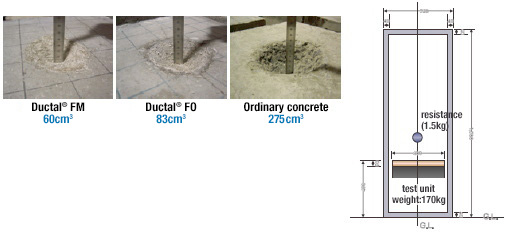Product Overview
Ductal® Full PremixDuctal® Full Premix is comprised of the Ductal® Premix material, special fibers, and a special water-reducing agent. This product is a standard mixed powder as defined in the Recommendations for Design and Construction of Ultra-High-Strength Fiber Reinforced Concrete Structures (Draft) issued by the Japan Society of Civil Engineers. It uses a variety of carefully selected materials for its cement base material and is manufactured under a strict quality control system. The use of Ductal® Premix eliminates the need for concrete mix design, thereby enabling the manufacture of stable-quality structural elements.The product lineup also includes Ductal® FM (Fiber Metallic), which uses special metallic fiber, and Ductal® FO (Fiber Organic), which uses organic fiber. Select the product best suited to your purpose.  Ductal®'s performance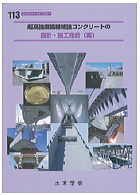 The use of Ductal® Premix standard mixed powder results in a more solid hardened body than with standard heat curing (48-hour steam curing at 90°C). Ductal®'s superior performance goes far beyond ordinary concrete, delivering markedly improved dynamic properties and material properties, such as durability. The use of Ductal® Premix standard mixed powder results in a more solid hardened body than with standard heat curing (48-hour steam curing at 90°C). Ductal®'s superior performance goes far beyond ordinary concrete, delivering markedly improved dynamic properties and material properties, such as durability.Based on Ductal®'s performance, the Recommendations for Design and Construction of Ultra-High-Strength Fiber Reinforced Concrete Structures (Draft) defines its design service life as 100 years (for Ductal® FM).
●Values for design of ultra-high-strength fiber reinforced concrete set by the Japan Society of Civil Engineers
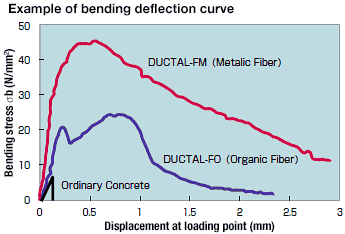 ●Comparison of physical values
DurabilityDuctal®s hydraulic conductivity coefficient, air permeability coefficient, and chloride ion diffusion coefficient are markedly lower compared with normal concrete, and resistance to mass transfer is dramatically higher.●Physical properties for mass transfer of ultra-high-strength fiber reinforced concrete (Ductal® FM)
Resistance to salt damageThe following diagram is an estimate of the depth of chloride ion penetration below the surface, based on a Japan Society of Civil Engineers formula. The depth of penetration for the threshold concentration for causing steel material corrosion (1.2kg/m3) in an area that is exposed to seawater splash (100 years) is about one-tenth to one-twentieth that of ordinary concrete.The reduction in covering depth that results from this makes it possible to lighten the weight of structural materials and reduce the lifecycle cost of structures. And the results of accelerated testing lead us to believe that although there are appearance problems, including spot and band rusting on the surface layer, there is an extremely low chance for a breakdown in the required performance of the structure due to the penetration of chloride ions. |
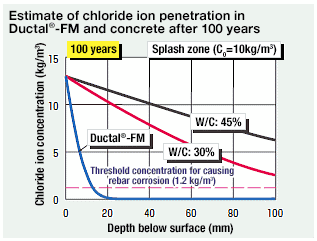 | 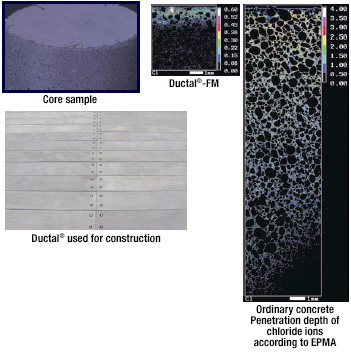 |
Abrasion resistance
Ductal®'s high abrasion resistance performance helps extend the life of structures.

Impact resistance
A steel ball (1.5 kg) is allowed to freefall 3,000 times, and then the volume of resulting depression is measured. Results show that Ductal® possesses about five times the strength of ordinary concrete.